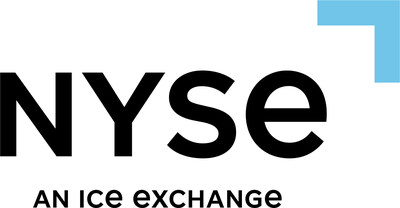Fintech PR
Fuel Labs, Creator of the First Optimistic Rollup, Unveils “Rollup OS”: The Operating System Purpose-built for Ethereum Rollups

LISBON, Portugal, Feb. 21, 2024 /PRNewswire/ — Fuel Labs, creator of the first optimistic rollup Fuel V1, today announced its evolution into the “Rollup OS”, a complete operating system specifically designed to help Ethereum rollups realize their full potential. Specifically designed to tackle critical limitations in the existing rollups architectures, the strategic shift strengthens Fuel Labs’ position as a visionary in the Ethereum ecosystem while paving the way for its mainnet launch in Q3 2024.
Unlike existing virtual machines (VMs) designed for layer-1 (L1) blockchains or general-purpose computation systems, Fuel offers the first purpose-built VM that will unlock new capabilities for Ethereum rollups.
Fuel’s unique architecture addresses core challenges in blockchain scalability beyond the conventional paradigm of modularity and even data availability — enabling higher throughput via parallelization, state minimization, seamless interoperability and VM customizability.
“As rollups mature, it’s clear that an operating environment optimized for their unique requirements is a non-negotiable next step. Fuel is that evolution: the ‘Rollup OS’ solves critical bottlenecks, future-proofing both rollup technology and the Ethereum ecosystem,” said Nick Dodson, CEO and Co-Founder of Fuel Labs.
Addressing Ethereum’s Scaling Bottleneck
Ethereum’s reign as the dominant smart contract platform is undeniable, yet its future-readiness and developer appeal hinges on EVM’s ability to solve future requirements of Ethereum rollups. As rollups and modular infrastructure rise, existing technologies made for general computation, or monolithic L1 systems, fail to address the evolving demands of this rollup-centric reality. This forces developers to navigate compromises in design, limiting innovation, adoption, and ultimately, Ethereum’s long-term vision for a globally decentralized network.
The Fuel Advantage: A New Operating System for the Rollup Era
Fuel brings unprecedented power to Ethereum rollups by combining state-of-the-art innovations and learning from its rich history in rollup development:
- Parallelization to Fuel Scalability Beyond Modularity: Parallel transaction execution in the FuelVM enables Fuel-powered rollups to offer a highly performant user experience, while preserving Ethereum’s decentralization and security. As blockchain networks are increasingly designed to be modular – separating execution, consensus, transaction finality and data availability into separate layers – optimized performance rests on parallelization to offer next-generation scalability benefits.
- Tackling State Bloat for Sustainable Growth: Fuel’s advanced UTXO model, coupled with unique state minimization techniques, combats state bloat – referring to the ever-increasing accumulation of data that must be entirely stored and managed by nodes in a blockchain network to ensure proper chain validation and state transitions. This allows Fuel-powered rollups to scale without compromise, inheriting Ethereum-level security all while maintaining the lowest node operation overheads. This translates to significantly decreased processing requirements for validators thereby ensuring long-term decentralization.
- Introspection for Seamless Interoperability: Cross-chain fragmentation reduces overall efficiency. Features like introspection streamline interchain communication, empowering developers and users to navigate a fully connected, multi-rollup ecosystem on Ethereum with confidence.
- Security-First Design with Asset Orientation: FuelVM removes non-intuitive features like ERC20’s unlimited approvals, and introduces multiple native assets for use cases like native NFT bridging and much more. Native account abstraction and support for multiple signature schemes open the doors to effortless user and wallet onboarding into web3, accelerating mainstream adoption.
- Developer Empowerment:
- FuelVM: The heart of the Rollup OS, FuelVM provides maximum flexibility and power to developers, unlocking innovations impossible with constrained legacy architectures.
- Sway: A domain-specific language designed for blockchains, combining features of Rust and Solidity for secure, yet developer-friendly, blockchain programming.
- Forc: A suite of powerful tools simplifying and accelerating dApp development and deployment on Fuel-powered chains.
- Highly Customizable: The Rollup OS unlocks a new wave of creativity in innovative decentralized application (dApp) building, purposefully designed to support use cases that require high computational load, such as advanced decentralized finance (DeFi) protocols and web3 gaming.
- Open-Sourced Security & Collaboration: Fuel prioritizes Ethereum’s security as the foundation, while advocating for collaboration over competition through its open-source ethos.
Fuel aims to remodel execution in order to fuel the future of Ethereum, unlocking never before seen web3 use cases at massive scale. For more information, developers may visit Fuel’s tech docs at https://docs.fuel.network. Support can also be found via Fuel’s Discord at https://discord.com/invite/fuelnetwork.
###
Nick Dodson, CEO and Co-Founder of Fuel Labs is available for interview.
About Fuel
Fuel is an operating system purpose-built for Ethereum rollups. Fuel aims to bring new capabilities to the Ethereum Ecosystem all while preserving decentralisation. Fuel rollups will have parallelization, state minimised execution, and interoperability along with native account abstraction and support for wallets of all networks.
Fuel combines the purpose-built FuelVM, a highly optimised Rust-based blockchain programming language Sway, a fully integrated tool chain Forc, and several services to create a complete Rollup OS for Ethereum. Fuel’s unique architecture will allow developers to build experiences never before seen in the Ethereum ecosystem.
For more information, please visit:
Website | X/Twitter | Discord | Blog | GitHub | Documentation | Forum
Logo – https://mma.prnewswire.com/media/2344492/4554137/Fuel_Labs_Logo.jpg
![]() View original content:https://www.prnewswire.co.uk/news-releases/fuel-labs-creator-of-the-first-optimistic-rollup-unveils-rollup-os-the-operating-system-purpose-built-for-ethereum-rollups-302067719.html
View original content:https://www.prnewswire.co.uk/news-releases/fuel-labs-creator-of-the-first-optimistic-rollup-unveils-rollup-os-the-operating-system-purpose-built-for-ethereum-rollups-302067719.html

Fintech PR
NYSE Content advisory: Pre-market update for March 14, 2025
NEW YORK, March 14, 2025 /PRNewswire/ — The New York Stock Exchange (NYSE) provides a daily pre-market update directly from the NYSE Trading Floor. Access today’s NYSE Pre-market update for market insights before trading begins.
Alison Kosik delivers the pre-market update on March 14th
- Investors welcomed a cooler-than-expected Producer Price Index reading for the month of February as tariff talk continues out of Washington D.C.
- Attention shifts to the Federal Reserve decisions coming next week as inflation data suggests the rate of inflation growth could be slowing.
- S&P 500 looks to rebound after ending yesterday in correction territory, which is a decline of at least 10% from a recent high.
Watch NYSE TV Live every weekday 9:00-10:00am ET

Video – https://mma.prnewswire.com/media/2641945/NYSE_March_14_2025_Market_Update.mp4
Logo – https://mma.prnewswire.com/media/2581322/New_York_Stock_Exchange_Logo.jpg
![]() View original content:https://www.prnewswire.co.uk/news-releases/nyse-content-advisory-pre-market-update-for-march-14-2025-302401916.html
View original content:https://www.prnewswire.co.uk/news-releases/nyse-content-advisory-pre-market-update-for-march-14-2025-302401916.html

Fintech PR
Curve Secures £37M Investment led by Hanaco Ventures as the Company approaches profitability and prepares to Launch Curve Pay in 2025
2025 is shaping up to be a milestone year for Curve as it forecasts reaching profitability, expands its product offerings, and prepares to introduce its challenger to Apple Pay and Google Wallet—Curve Pay.
LONDON, March 14, 2025 /PRNewswire/ — Curve, the digital wallet that saves you money, announced today it has secured a £37M investment led by Hanaco Ventures, with participation of existing shareholders such as Fuel Ventures, IDC, Outward VC and Lord Stanley Fink. The funding will support Curve’s ambitious plans for 2025, including industry-first product launches and a series of customer-driven enhancements set to redefine how consumers manage their money in the future. Crucially, this capital injection strengthens Curve’s financial position, accelerating its path to profitability while continuing to innovate and scale.
With regulatory changes forcing behemoths like Apple to open their NFC technology and digital wallet adoption surging across the UK and Europe, combined with banks actively looking to introduce their own Wallet solutions, the market is primed for intense competition in digital wallets. As people seek more options and greater flexibility in how they control their finances, Curve, as the established champion for consumer choice, is developing an offering which benefits both consumers and banks simultaneously. The investment from Hanaco will further enable Curve to capitalize on these market shifts — precipitated by consumer demand for more choice — expanding its market presence and partnerships, strengthening its infrastructure, and enhancing customer experiences.
“This latest investment reflects the confidence in Curve’s vision to redefine the digital wallet space,” said Shachar Bialick, Founder & CEO of Curve. “The Wallet Wars are here, and the only available solutions for customers to date are simple wallets which do nothing more than let you pay with your card. Curve is the only wallet that adds superpowers to your money; avoid Fx fees from any linked card, split old purchases into installments, earn cashback on top of any card and more. We see issuers looking to enter the market, and networks introducing innovative products such as Visa Flex and MasterCard One Credentials. This investment would allow us to invest further in our customer experience, bring new partnerships, and accelerate our path to profitability.”
“Curve reimagined the digital wallet delivering a one-of-a-kind financial experience that simplifies and supercharges how you pay and manage your money – all without changing your bank,” said Tomer Jacob at Hanaco. “The Curve team has proven to be resilient and innovative, and we are excited to support Curve as it continues to grow, bringing more choice and flexibility to the digital wallet market, and to its millions of users.”
Curve has consistently delivered a digital wallet designed to provide greater control and flexibility to its growing global customer base of what is currently over six million users. Starting with the Curve Card — the one card to rule them all. While benefits like stacking rewards, real-time spending insights, and avoiding foreign exchange fees, empowers customers to save money and make informed financial decisions, innovations such as Go Back in Time® allow them to retroactively move transactions between cards, and manage their cashflow better, avoid debt etc.
Curve also offers a number of unique borrowing features and benefits. Curve ReFI enables customers to instantly transfer balances from one card to another, preventing unnecessary interest accrual, late payment fees, and overdrafts. Another recent invention, Curve Flex enables customers to split any past or future purchases into manageable instalments, wherever they shop. Further strengthening its commitment to financial empowerment, Curve has this week partnered with Infact to introduce real-time credit reporting for Curve Flex customers.
A key milestone for the company will be the upcoming launch of Curve Pay, a digital wallet alternative for Android and iOS users.
About Curve
Curve is a pioneering digital wallet that goes beyond simply storing your cards digitally. Unlike other digital wallets, Curve actively works to save you money and enhance every payment you make. Through its cutting-edge wallet technology, Curve will help you avoid hidden foreign transaction fees from any linked card, allows you to switch payment cards even after purchase, and lets you earn rewards on top of your existing card benefits.
The Curve Wallet sits at the heart of this technology, bringing all your cards and other payment sources into one secure platform while adding unique money-saving features. Whether you’re shopping online, in-store, or abroad, Curve gets the most value for your money. Authorised and regulated in the UK, EEA, and US, Curve has amassed more than 6 million customers globally, and processes billions in payments annually while continuing to innovate in digital finance.
View original content:https://www.prnewswire.co.uk/news-releases/curve-secures-37m-investment-led-by-hanaco-ventures-as-the-company-approaches-profitability-and-prepares-to-launch-curve-pay-in-2025-302401910.html

Fintech PR
Azurity Pharmaceuticals Completes Acquisition of Covis Pharma
WOBURN, Mass., March 14, 2025 /PRNewswire/ — Azurity Pharmaceuticals (“Azurity”) announced today the successful completion of its acquisition of Covis Group S.à r.l. (“Covis”) from existing investors. With this acquisition, Covis is now a wholly-owned subsidiary of Azurity.
This strategic acquisition reinforces Azurity’s leadership in branded pharmaceuticals, harnessing the complementary strengths of both companies across multiple complex dosage forms and therapeutic areas. By combining expertise and resources, Azurity strengthens its ability to deliver medicines to overlooked patients on a global scale.
Strategic Benefits of the Acquisition:
- Expanded Therapeutic Portfolio – The integration of Covis’ product portfolio and pipeline enhances Azurity’s offerings across ten complex dosage forms and nine key therapeutic areas, including cardiovascular, respiratory, central nervous system, endocrinology, gastrointestinal, hematology, immunology, anti-infectives, and oncology.
- Global Footprint – The acquisition strengthens Azurity’s global footprint, expanding its commercial presence to over 50 countries and enabling greater patient accessibility to life-changing treatments. Azurity and its subsidiaries will employ more than 800 colleagues across North America, Europe and Asia.
- Key Biopharma Partner of Choice – The combined company is positioned to be a key partner for global life sciences companies looking to develop and commercialize their products, providing partners access to its deep development capabilities and global commercial infrastructure.
- Accelerated Innovation – By combining expertise and resources, Azurity is positioned to advance innovative treatments furthering Azurity’s mission to serve overlooked patients using a unique and accelerated development process – enabling scale and velocity.
- Next-Gen Commercial Model – The integrated company portfolio will benefit from Azurity’s highly efficient and effective commercial model, combining data, analytics, and AI-driven digital capabilities to drive stakeholder engagement using an optimized omnichannel marketing approach.
“We are excited to welcome Covis Pharma to Azurity,” said Ronald Scarboro, CEO of Azurity. “The efforts of colleagues at both companies, their devotion to overlooked patients, and our culture of execution have brought us together to build this unique, highly differentiated pharmaceutical company. I look forward to all that we will accomplish as we grow globally and embrace new opportunities, driven by our purpose.”
“I am delighted that Azurity recognized the accomplishments and potential of Covis, and am thankful for the tireless efforts of Covis colleagues in support of patients that benefit from the company’s products,” said Rajiv De Silva, Chairman of the Board of Covis. “I am confident that the two companies will be able to untap each other’s highly complementary capabilities to accelerate development and commercialization of necessary medicines to underserved patients.”
“QHP Capital is proud to support Azurity in this acquisition, which aligns with our commitment to investing in life sciences and healthcare innovations,” said Jeff Edwards, Partner at QHP Capital, the majority owner of Azurity. “It has been our privilege to support and enable Azurity from a small, limited product, US-only company at the start of our investment in 2018 to the global, large, diversified portfolio, high-growth company it is today. We are committed to further enabling Azurity for the significant growth its team is well positioned to execute.”
Goldman Sachs served as financial advisor and Eversheds Sutherland and White & Case served as legal advisors to Azurity. Guggenheim Securities served as financial advisor to Covis and Reed Smith and A&O Shearman served as legal advisors to Covis.
About Azurity Pharmaceuticals:
Azurity Pharmaceuticals is a privately held company committed to delivering innovative, high-quality medicines for overlooked patients. Azurity’s global footprint is over 50 countries, with a diversified portfolio of 30+ marketed brands spanning ten dosage forms and nine key therapeutic areas. Powered by its Next-Gen Commercial Model, Azurity leverages data, analytics, and AI-driven digital tools to enhance market reach and stakeholder engagement. For more information, visit www.azurity.com.
About QHP Capital:
QHP Capital is an investor in technology and services companies in the life sciences, medical technology, and healthcare sectors. QHP has built an investment platform to provide strategic capital and industry expertise in partnership with strong management teams. The investment team consists of seasoned investment and operational professionals with significant investment experience and deep life science, medical technology, and healthcare expertise. QHP benefits from an extensive network of industry experts that assist in identifying, analyzing, and growing QHP’s portfolio companies. For more information, please visit www.qhpcapital.com.
Disclosure notice: Azurity and QHP undertake no obligation to update or revise any forward-looking statements contained in this release as a result of new information, future events, or evolving circumstances.
Logo – https://mma.prnewswire.com/media/1435351/Azurity_r_rgb_Logo.jpg
![]() View original content:https://www.prnewswire.co.uk/news-releases/azurity-pharmaceuticals-completes-acquisition-of-covis-pharma-302401906.html
View original content:https://www.prnewswire.co.uk/news-releases/azurity-pharmaceuticals-completes-acquisition-of-covis-pharma-302401906.html

-

 Fintech7 days ago
Fintech7 days agoFintech Pulse: Your Daily Industry Brief – March 7, 2025 | Wise, Visa, Cadence, Unicredit, Aion Bank, Vodeno
-

 Fintech PR7 days ago
Fintech PR7 days agoInnocan Pharma Announces Closing of Debenture Unit Offering to its Largest Shareholder, Tamar Innovest Limited
-

 Fintech PR7 days ago
Fintech PR7 days agoElliptic Data used by US Secret Service in Investigation into $96 Billion Russian Crypto Exchange Garantex
-

 Fintech PR7 days ago
Fintech PR7 days agoApollo Group TV Expands Payment Options Making Premium Streaming More Accessible In 2025
-

 Fintech4 days ago
Fintech4 days agoFintech Pulse: Your Daily Industry Brief – March 10, 2025 | Finovifi, Modern Banking Systems, France Flowdesk, Fintech Galaxy, ProgressSoft, Finory Investment, 1337 Ventures
-

 Fintech3 days ago
Fintech3 days agoFintech Pulse: Your Daily Industry Brief – March 11, 2025: Apex Fintech, Bakkt, Stripe, PayPal, Nvidia, Shopify, Adyen, Intergiro, Seon, Infintegration
-

 Fintech PR6 days ago
Fintech PR6 days agoCourt Rules Voting Rights Restriction on Young Poong as Unlawful
-

 Fintech PR4 days ago
Fintech PR4 days agoCommercial Auto Insurance Market to Reach $390.5 billion, Globally, by 2033 at 9.1% CAGR: Allied Market Research




